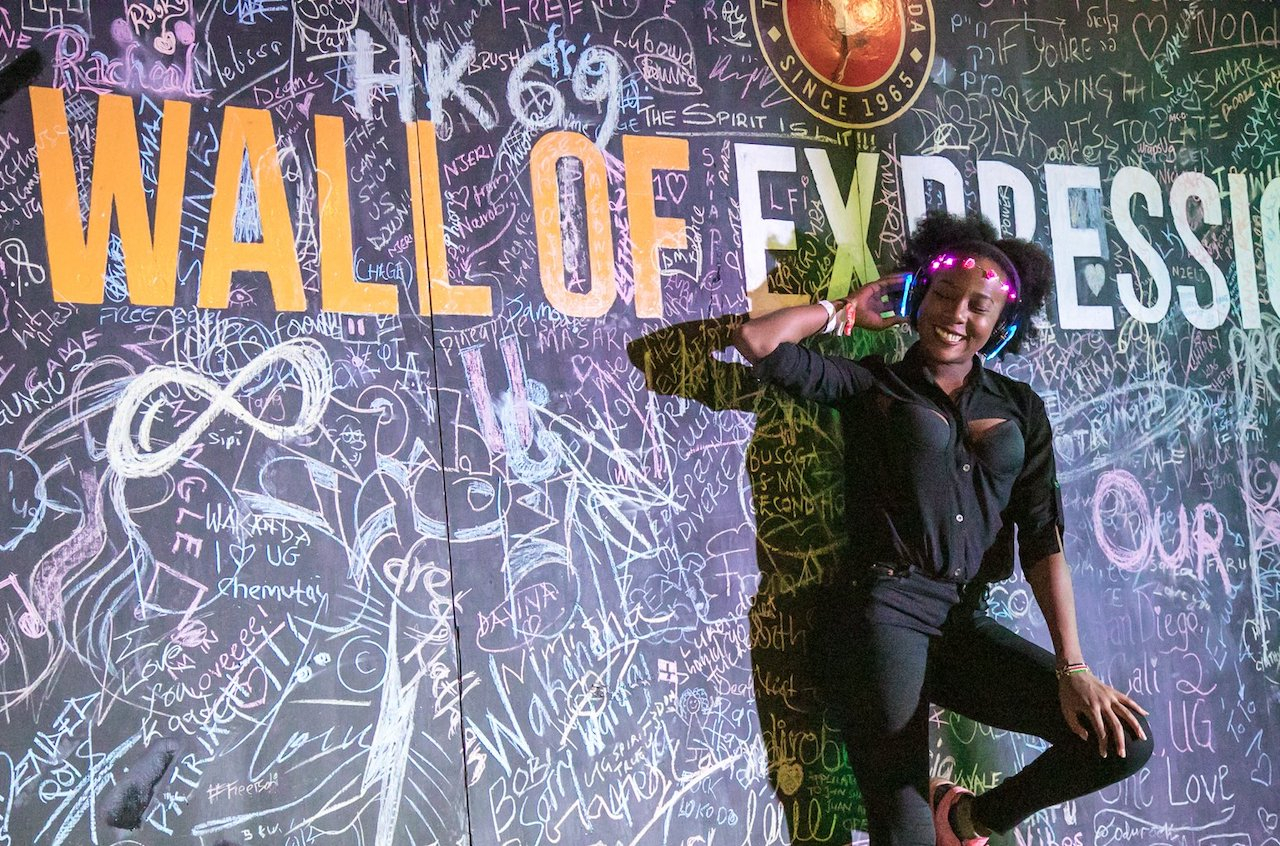- East Africa's most eye-opening dance music festival overcomes threats of cancellation to hold another triumphant edition.
- The source of The Nile, a river steeped in human history, is, for many reasons, an intriguing spot for a four-day music festival. Then there's the town of Jinja, which, though it occasionally gets clogged up by the outrageous traffic that plagues other Ugandan cities, is surrounded by staggering natural beauty. The festival site, Nile Discovery Beach, is a verdant resort with winding concrete roads and decaying animal sculptures. As a venue, it feels so well-suited to the event that you wonder what the organisers' faces must have looked like the first time they stumbled from zone to zone, the plans for the weekend unfolding in front of them in their minds.
This is before you even take into account Nyege Nyege's programming. Spanning traditional East African folk and modern strains of hip-hop and dance music, the lineup felt at once daring, interesting and immensely danceable. Late on Sunday night, as myself and a group of friends sat and watched Fonkodelis Archestra, a traditional Baganda percussion group who combine immensely satisfying drum work with outrageous contortionist tricks and stage theatrics (at one point someone emerged from backstage with their head on fire), we realised that this was the first time we'd all sat down together to watch something. Nearly every other second was spent losing ourselves on the dance floor. "Nyege Nyege" is a Lugandan term for "the feeling of a sudden uncontrollable urge to move, shake or dance." At the festival, this took on a whole new meaning.
80 percent of this year's bookings were made up of African acts. Otim Alpha and Leo Palayeng's rave updates of traditional acholi wedding music stood out, thanks in part to Alpha handing out hundreds of replicas of his headgear, which were spotted repeatedly across the weekend. Gqom was everywhere—the enthusiasm and stage presence of the rapper Sho Madjozi will stick with me for a long time. During her first performance, the most intense swarm of flies I've ever seen crowded the stage, but they didn't cause a single misstep in her show. The absurdly frenetic and frenzied singeli sound was also well represented, with Bamba Pana & Makaveli and MCZO & DJ Duke both delivering killer sets. Having missed DJ Kampire's recent European tour, it was great to see her on home turf. Her blend of classic and contemporary African musical styles was infectious. Just as invigorating was the vogue, deep house and UK bass that made up Authentically Plastic's performance, which, impressively, was only their third-ever DJ set.
A number of artists were taking advantage of the Nyege Nyege residency in Kampala. Rian Treanor's main stage collaboration with the acholi multi-instrumentalist Ocen was an incredible start to the festival, while Slikback, Rey Sapienz and Zilla's multiple performances across the weekend cemented Hakuna Kulala—the new sub-label from Nyege Nyege Tapes—as one of the most vital and forward-thinking dance outlets around today. The amount of unique and often underrepresented talent on display was mind-blowing.
The acts flown over from Europe and the US also added something fresh. They seemed drawn together by certain common threads—each artist was totally singular, uncompromising and outrageously fun. Live performances from Jlin, Errorsmith and Giant Swan were all fantastic examples of this. The same went for DJ sets from JASSS, who spanned a wealth of rave and jungle oddities, Brussels' DJ soFa, whose deep record bags featured a run of crazy synth solos, and DJ Marcelle, who moved from a recording of someone screaming for help through footwork (Itoa) and pounding techno (Randomer). None of these, though, quite reached the fever pitch of Juliana Huxtable, who I was lucky enough to catch twice, and whose barrage of twisted club sounds rattled the speakers and chests of the rapturous crowd.
On a more sombre note, a few days before Nyege Nyege the Ugandan minister for ethics and integrity, Simon Lokodo, hosted a press conference that had many worried attendees huddled around TV screens and hunched over smartphones. Lokodo had argued that the festival promoted the use of narcotics, sex with animals and sex in The Nile, the remnants of which could go on to poison the local wildlife. Most damningly for the LGBTQ+ community, he also said the festival promoted homosexuality, which is currently illegal in Uganda. As such, he had called for it to be cancelled.
Luckily, this wasn't his decision to make. While Nyege Nyege isn't explicitly an LGBTQ+ event, it's a place where everyone, especially the local youth, can feel, act and dress like themselves. (That said, it's not OK for white tourists to dress up like African animals or safari explorers—you look like fucking idiots.) A number of people bought jackets at market stalls emblazoned with the word "QUEER." Of the acts I saw, I estimate that more than 50 percent were women. There was also a focus on engaging the local community. Bucking global trends, the festival used sponsorship to make tickets cheaper than they've ever been, with the first batch available locally at roughly $USD10. Beers cost less than at local bars. Overall, there was a sense of social responsibility at the heart of the event that puts most festivals to shame. Every part of Nyege Nyege is an uphill battle, from logistics and sourcing equipment to government intervention, but the team takes it all in stride, pulling off not only one of the best festivals in East Africa, but one of the best in the world.
Photo credits /
Tweny Moments - Lead, Ocen
Zahara Abdul - All others
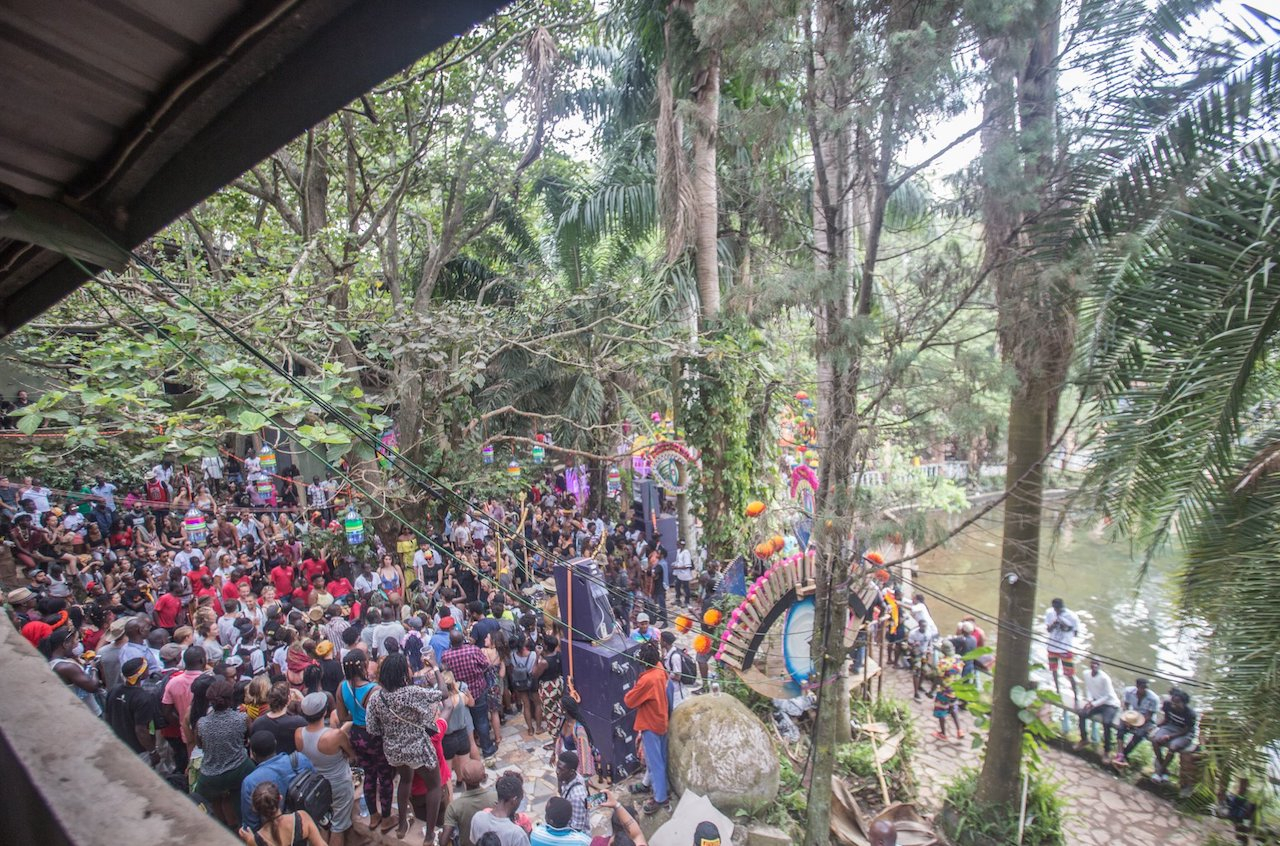 80 percent of this year's bookings were made up of African acts. Otim Alpha and Leo Palayeng's rave updates of traditional acholi wedding music stood out, thanks in part to Alpha handing out hundreds of replicas of his headgear, which were spotted repeatedly across the weekend. Gqom was everywhere—the enthusiasm and stage presence of the rapper Sho Madjozi will stick with me for a long time. During her first performance, the most intense swarm of flies I've ever seen crowded the stage, but they didn't cause a single misstep in her show. The absurdly frenetic and frenzied singeli sound was also well represented, with Bamba Pana & Makaveli and MCZO & DJ Duke both delivering killer sets. Having missed DJ Kampire's recent European tour, it was great to see her on home turf. Her blend of classic and contemporary African musical styles was infectious. Just as invigorating was the vogue, deep house and UK bass that made up Authentically Plastic's performance, which, impressively, was only their third-ever DJ set. A number of artists were taking advantage of the Nyege Nyege residency in Kampala. Rian Treanor's main stage collaboration with the acholi multi-instrumentalist Ocen was an incredible start to the festival, while Slikback, Rey Sapienz and Zilla's multiple performances across the weekend cemented Hakuna Kulala—the new sub-label from Nyege Nyege Tapes—as one of the most vital and forward-thinking dance outlets around today. The amount of unique and often underrepresented talent on display was mind-blowing.
80 percent of this year's bookings were made up of African acts. Otim Alpha and Leo Palayeng's rave updates of traditional acholi wedding music stood out, thanks in part to Alpha handing out hundreds of replicas of his headgear, which were spotted repeatedly across the weekend. Gqom was everywhere—the enthusiasm and stage presence of the rapper Sho Madjozi will stick with me for a long time. During her first performance, the most intense swarm of flies I've ever seen crowded the stage, but they didn't cause a single misstep in her show. The absurdly frenetic and frenzied singeli sound was also well represented, with Bamba Pana & Makaveli and MCZO & DJ Duke both delivering killer sets. Having missed DJ Kampire's recent European tour, it was great to see her on home turf. Her blend of classic and contemporary African musical styles was infectious. Just as invigorating was the vogue, deep house and UK bass that made up Authentically Plastic's performance, which, impressively, was only their third-ever DJ set. A number of artists were taking advantage of the Nyege Nyege residency in Kampala. Rian Treanor's main stage collaboration with the acholi multi-instrumentalist Ocen was an incredible start to the festival, while Slikback, Rey Sapienz and Zilla's multiple performances across the weekend cemented Hakuna Kulala—the new sub-label from Nyege Nyege Tapes—as one of the most vital and forward-thinking dance outlets around today. The amount of unique and often underrepresented talent on display was mind-blowing.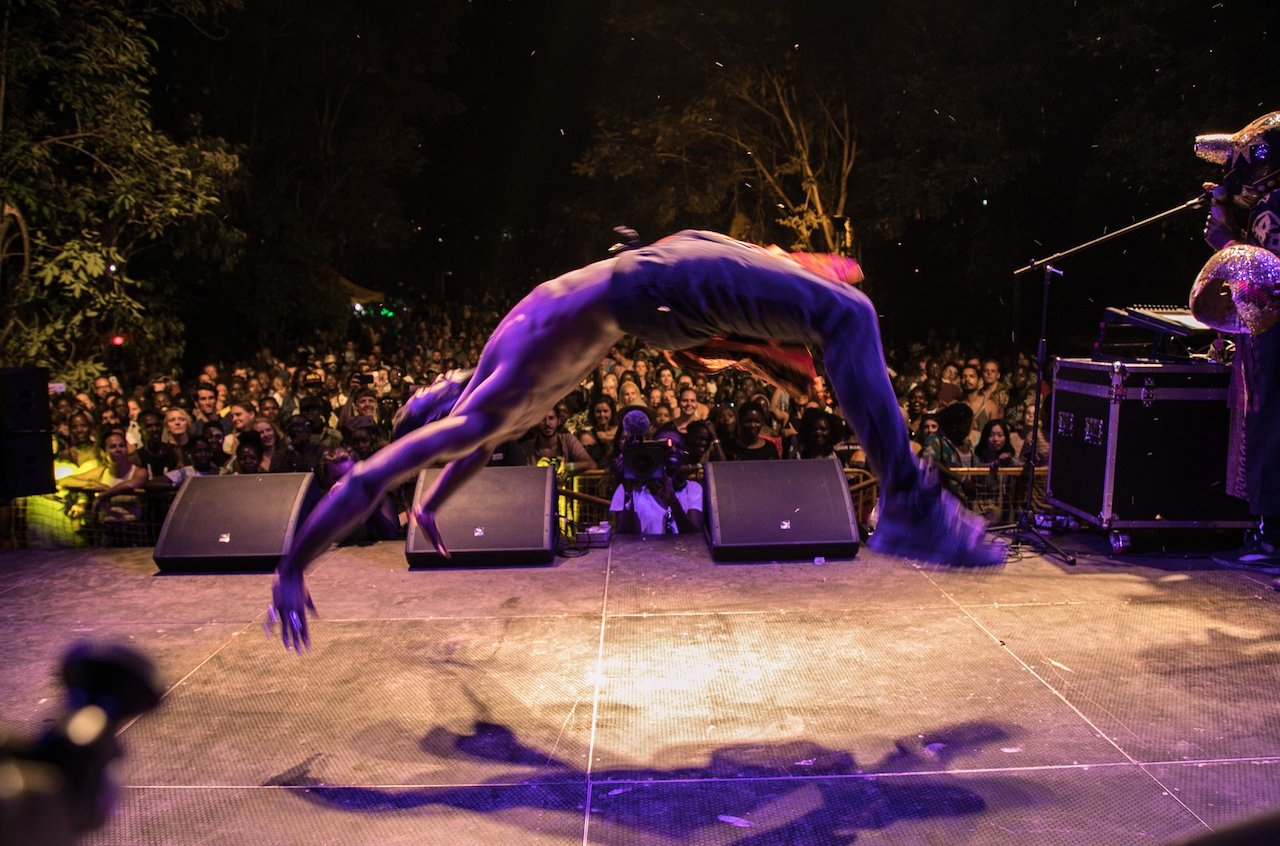
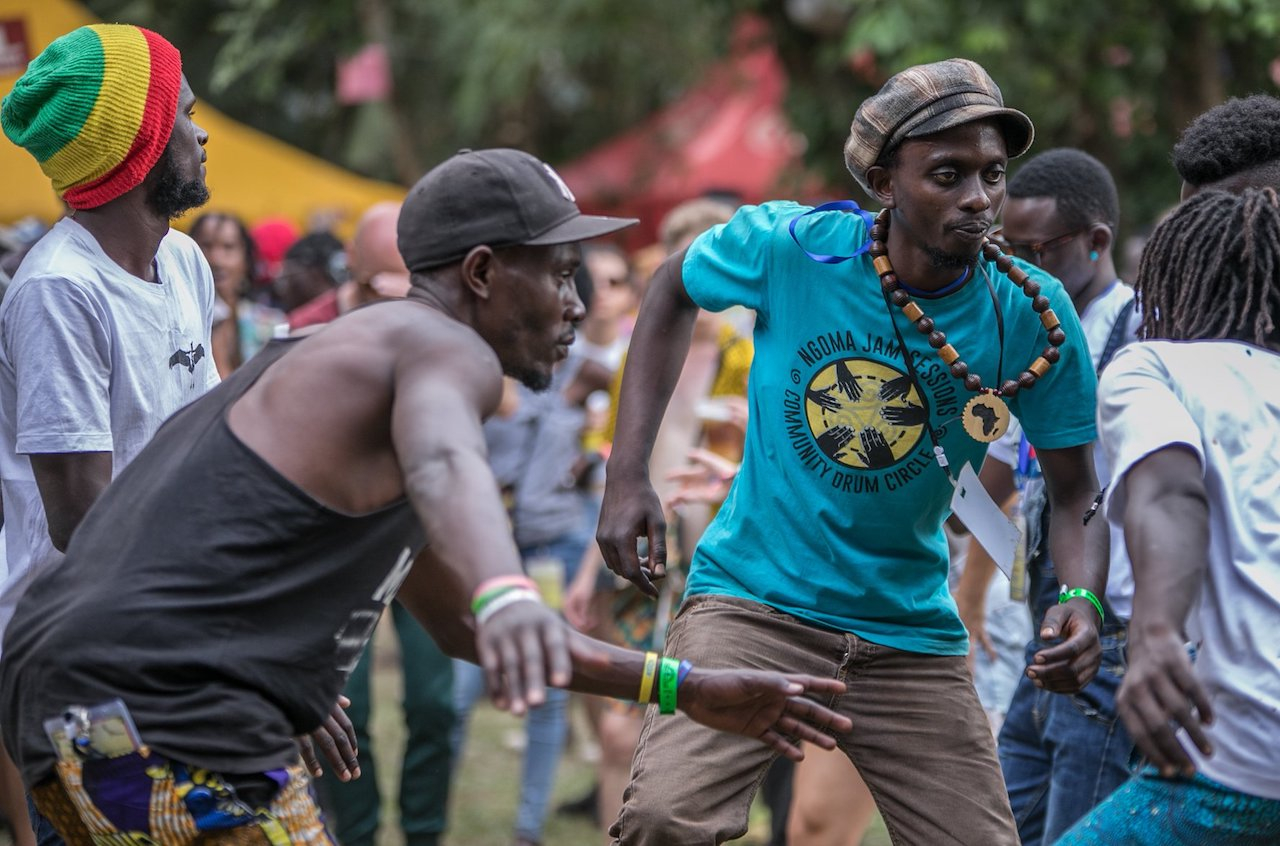 The acts flown over from Europe and the US also added something fresh. They seemed drawn together by certain common threads—each artist was totally singular, uncompromising and outrageously fun. Live performances from Jlin, Errorsmith and Giant Swan were all fantastic examples of this. The same went for DJ sets from JASSS, who spanned a wealth of rave and jungle oddities, Brussels' DJ soFa, whose deep record bags featured a run of crazy synth solos, and DJ Marcelle, who moved from a recording of someone screaming for help through footwork (Itoa) and pounding techno (Randomer). None of these, though, quite reached the fever pitch of Juliana Huxtable, who I was lucky enough to catch twice, and whose barrage of twisted club sounds rattled the speakers and chests of the rapturous crowd. On a more sombre note, a few days before Nyege Nyege the Ugandan minister for ethics and integrity, Simon Lokodo, hosted a press conference that had many worried attendees huddled around TV screens and hunched over smartphones. Lokodo had argued that the festival promoted the use of narcotics, sex with animals and sex in The Nile, the remnants of which could go on to poison the local wildlife. Most damningly for the LGBTQ+ community, he also said the festival promoted homosexuality, which is currently illegal in Uganda. As such, he had called for it to be cancelled.
The acts flown over from Europe and the US also added something fresh. They seemed drawn together by certain common threads—each artist was totally singular, uncompromising and outrageously fun. Live performances from Jlin, Errorsmith and Giant Swan were all fantastic examples of this. The same went for DJ sets from JASSS, who spanned a wealth of rave and jungle oddities, Brussels' DJ soFa, whose deep record bags featured a run of crazy synth solos, and DJ Marcelle, who moved from a recording of someone screaming for help through footwork (Itoa) and pounding techno (Randomer). None of these, though, quite reached the fever pitch of Juliana Huxtable, who I was lucky enough to catch twice, and whose barrage of twisted club sounds rattled the speakers and chests of the rapturous crowd. On a more sombre note, a few days before Nyege Nyege the Ugandan minister for ethics and integrity, Simon Lokodo, hosted a press conference that had many worried attendees huddled around TV screens and hunched over smartphones. Lokodo had argued that the festival promoted the use of narcotics, sex with animals and sex in The Nile, the remnants of which could go on to poison the local wildlife. Most damningly for the LGBTQ+ community, he also said the festival promoted homosexuality, which is currently illegal in Uganda. As such, he had called for it to be cancelled.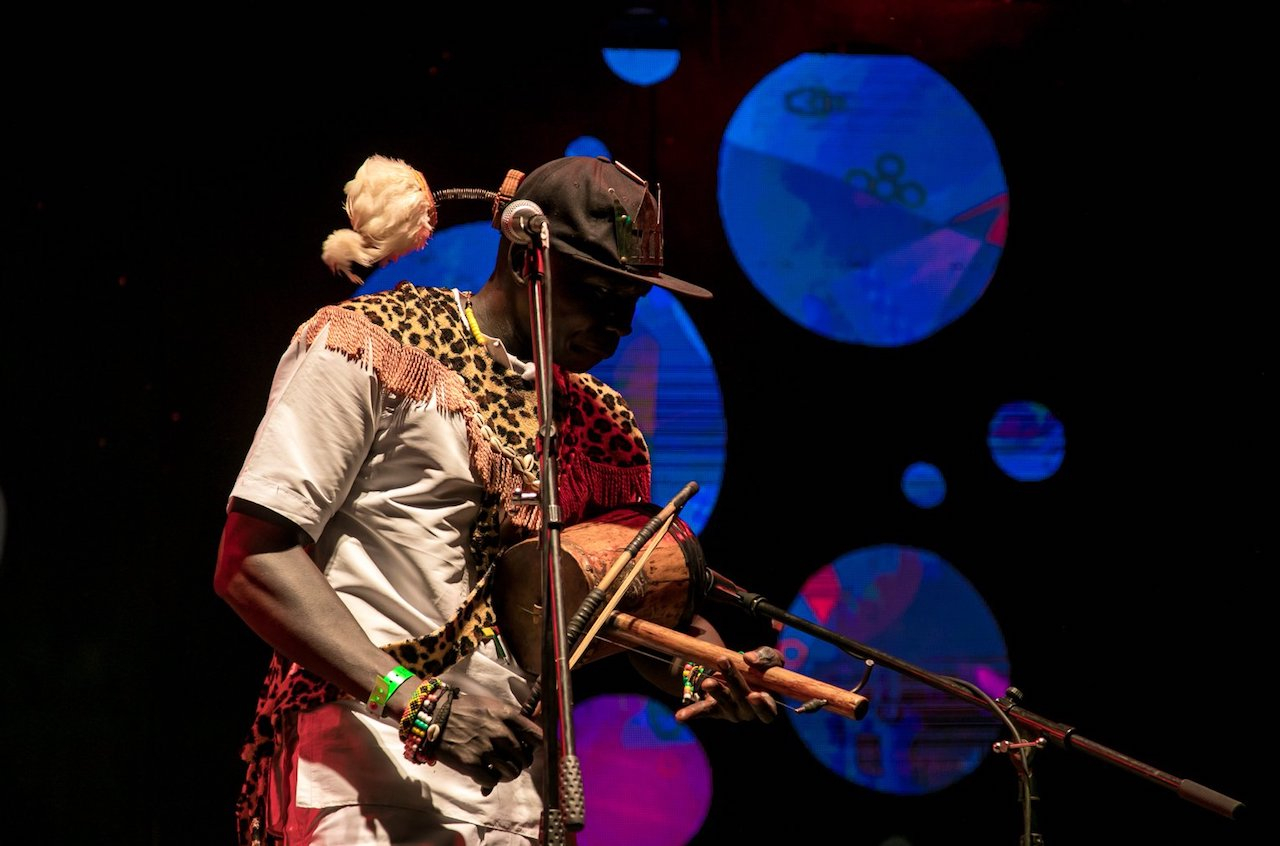
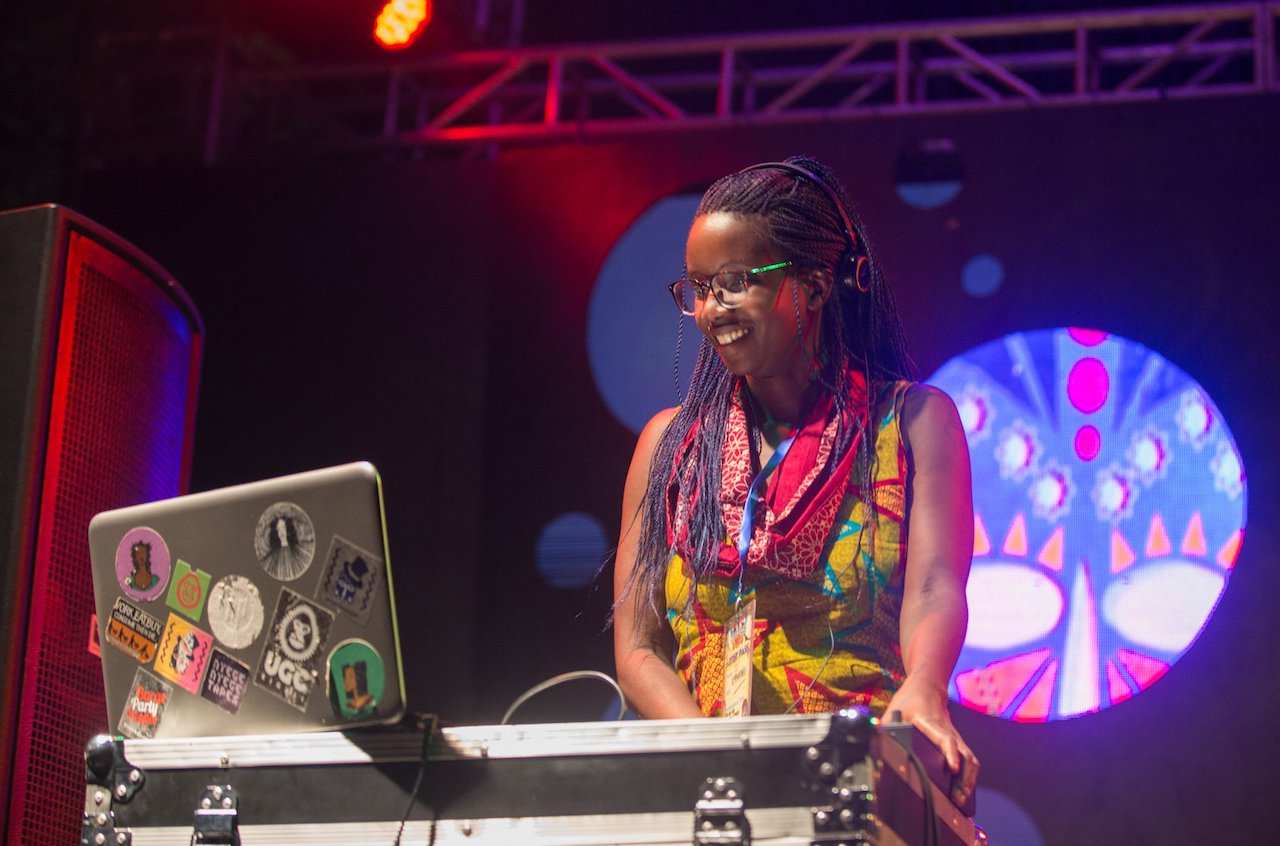 Luckily, this wasn't his decision to make. While Nyege Nyege isn't explicitly an LGBTQ+ event, it's a place where everyone, especially the local youth, can feel, act and dress like themselves. (That said, it's not OK for white tourists to dress up like African animals or safari explorers—you look like fucking idiots.) A number of people bought jackets at market stalls emblazoned with the word "QUEER." Of the acts I saw, I estimate that more than 50 percent were women. There was also a focus on engaging the local community. Bucking global trends, the festival used sponsorship to make tickets cheaper than they've ever been, with the first batch available locally at roughly $USD10. Beers cost less than at local bars. Overall, there was a sense of social responsibility at the heart of the event that puts most festivals to shame. Every part of Nyege Nyege is an uphill battle, from logistics and sourcing equipment to government intervention, but the team takes it all in stride, pulling off not only one of the best festivals in East Africa, but one of the best in the world. Photo credits / Tweny Moments - Lead, Ocen Zahara Abdul - All others
Luckily, this wasn't his decision to make. While Nyege Nyege isn't explicitly an LGBTQ+ event, it's a place where everyone, especially the local youth, can feel, act and dress like themselves. (That said, it's not OK for white tourists to dress up like African animals or safari explorers—you look like fucking idiots.) A number of people bought jackets at market stalls emblazoned with the word "QUEER." Of the acts I saw, I estimate that more than 50 percent were women. There was also a focus on engaging the local community. Bucking global trends, the festival used sponsorship to make tickets cheaper than they've ever been, with the first batch available locally at roughly $USD10. Beers cost less than at local bars. Overall, there was a sense of social responsibility at the heart of the event that puts most festivals to shame. Every part of Nyege Nyege is an uphill battle, from logistics and sourcing equipment to government intervention, but the team takes it all in stride, pulling off not only one of the best festivals in East Africa, but one of the best in the world. Photo credits / Tweny Moments - Lead, Ocen Zahara Abdul - All others